Grace Harrison
Job title Gymnastics
Employer Mintridge Foundation
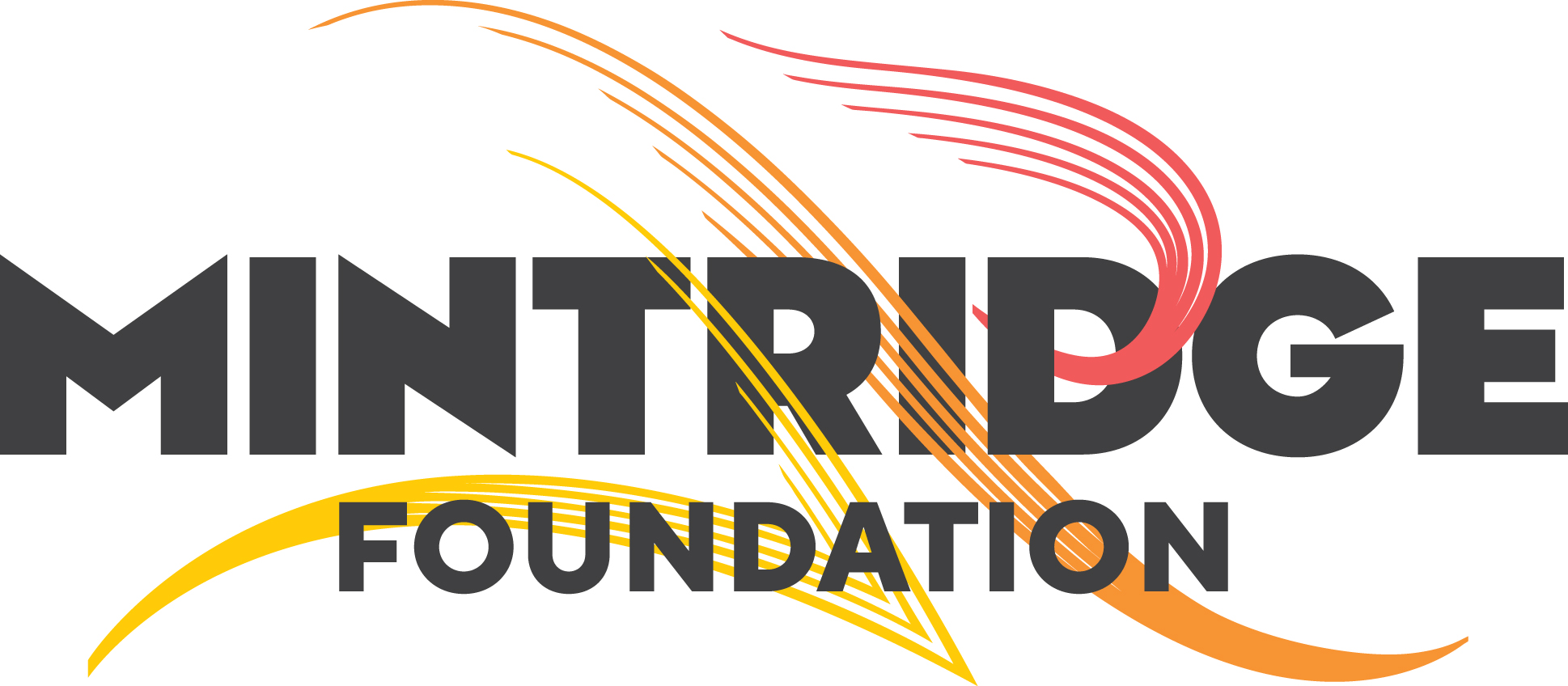
Grace Harrison was born and raised on the Isle of Man and that is where her gymnastics journey began. At 3 years old, she went to baby gymnastics classes and never looked back from there. Grace worked her way up through the levels, competing in multiple national and international competitions.
Grace represented the Isle of Man at 4 Island Games, with Bermuda 2013 being a key highlight as she came away with a total of 10 medals, 5 of them gold. Grace also competed in 5 Northern European Championships, making a total of 4 individual finals.
Here Grace outlines her thoughts on how to become a gymnast and forge a professional career playing sport.
What does it take to forge a professional career in sport?
I’ve been asked a few times how to become a gymnast. Training and competing within any sport at an elite level requires an abundance of commitment and dedication. Most professional sportspeople will have had ups and downs along their journey and had to find the inner strength to carry on towards their sporting goals. From my experience, to forge a professional career in sport, it is key to love what you do. Putting in hours of hard work is so much easier when you are passionate and enjoy what you do. I have always loved gymnastics and that is what helped push me through the hard days to become a gymnast.
Your advice to young people on how to achieve success…
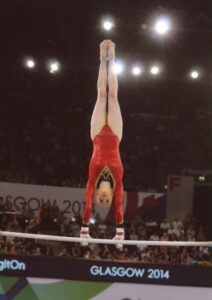 Motivation: Being motivated towards your goals within the sport is so important. Within gymnastics, if you are not motivated towards the skills that you are doing, it can become a challenge to progress. Nobody will be 100% motivated all of the time and it is important to recognise if you need to take a step back to re-evaluate. Something I carried with me throughout my career was that you will not be able to give 100% everyday, but as long as you give 100% of whatever you have, you can always be proud of the effort you’re putting in.
Motivation: Being motivated towards your goals within the sport is so important. Within gymnastics, if you are not motivated towards the skills that you are doing, it can become a challenge to progress. Nobody will be 100% motivated all of the time and it is important to recognise if you need to take a step back to re-evaluate. Something I carried with me throughout my career was that you will not be able to give 100% everyday, but as long as you give 100% of whatever you have, you can always be proud of the effort you’re putting in.
Confidence: There are so many different skills to learn and develop within gymnastics, you are always trying to develop confidence in different areas. For example, when learning a new skill you are likely to take time to develop the confidence to progress the skill and eventually perform it in a competition setting. Having confidence in your coaches is so important, as they will know when you are ready to learn something new or develop a skill further. The best way to build confidence within a competition setting is to be well prepared. If you know you have done all the hard work in training and have refined your routines, you can be confident in your preparations and this will positively influence your performances.
Fitness: To become a gymnast it is so important to be physically prepared to do your skills safely. Strength and conditioning programmes that may be set by your coaches are there to build strength, flexibility, endurance etc., which allow you to be physically prepared to do your gymnastics skills. My key advice here is to put the same effort and focus into fitness/strength and conditioning as is put into gymnastics specific skills and drills.
Nutrition: Nutrition is really important as this is fuel for your body to be a gymnast. A healthy and balanced diet is so important to be able to perform well, but also to enjoy food. Where it is possible, advice from a sports nutritionist is really beneficial in getting individualised advice about what nutrition is best for you at different times, to fuel your body most effectively.
Advice for Young Athletes Attending a Trial…
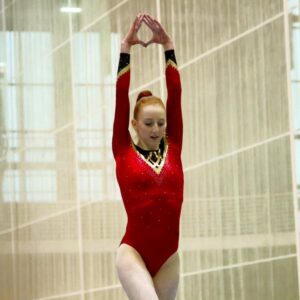 Trials can be nerve-wracking experiences, especially if qualification for a big event is on the line. Being confident in your preparations is really beneficial in calming nerves when entering a trial environment. ‘Do what you do in the gym’ is a phrase I used regularly – I knew I had prepared well, so seeing the trial as another training session helped to keep my focus on each skill, rather than causing me to become overwhelmed by the event.
Trials can be nerve-wracking experiences, especially if qualification for a big event is on the line. Being confident in your preparations is really beneficial in calming nerves when entering a trial environment. ‘Do what you do in the gym’ is a phrase I used regularly – I knew I had prepared well, so seeing the trial as another training session helped to keep my focus on each skill, rather than causing me to become overwhelmed by the event.
What was the best advice you were given?
The best advice I was given is to control the controllables. Within all sports there are so many things you can’t control, such as the opposition, judges, and equipment. Spending time dwelling on these factors is a waste of energy, taking focus away from the things you can control, such as your mental and physical preparedness, nutrition, and sleep.
I used to really struggle within a competition if I had a poor performance on one piece of apparatus as I would carry my disappointment with me throughout the rest of the competition. This piece of advice helped me to realise that I could not control my past performances, but I could control my readiness for the rest of the competition. This advice helped to shift my focus onto the things that were within my control, helping me to leave poor performances behind and see my following routines as a fresh start.
Grace Harrison is an Ambassador for The Mintridge Foundation a registered charity dedicated to enhancing life skills in young people through sport. They provide a support network for young people by harnessing the power of positive sporting role models. For more information on how they can support your sports programme visit their website.
Mintridge Foundation Directory
More advice on how to become a professional sports athlete…
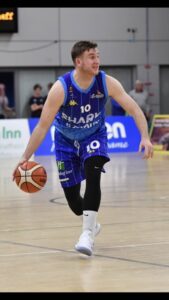 Football – Fil Kamps
Football – Fil Kamps
Climbing – Molly Thompson-Smith
Judo – Nekada Davis
Hockey – Shona McCallin MBE
Wheelchair Basketball – Jordan Jarrett Bryan
Cricket – Patrick Foster
Trap Shooting – Georgina Roberts
Archery – Danielle Brown MBE
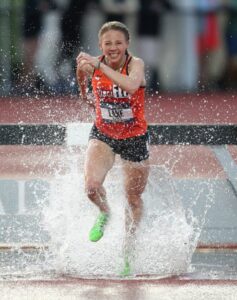 Athletics – Iona Lake
Athletics – Iona Lake
Basketball – Marko Backovic
Sailing – Hannah Diamond

